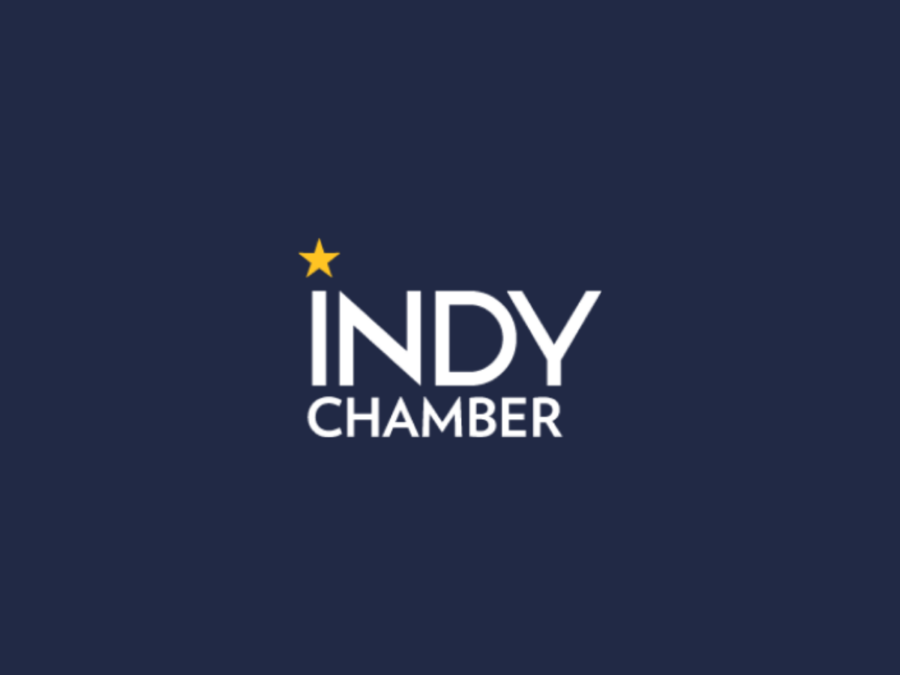Most of the noise and emotional energy of this primary election season was generated by a dozen or so challengers to incumbent GOP lawmakers, often fueled by rigid ideological stances and grievances accumulated over the two-year COVID health emergency.
But did the sound and fury of the so-called ‘liberty candidates’ signify much in terms of electoral success? Not really, according to Tuesday’s results—but candidates endorsed by your Indy Chamber’s Business Advocacy Committee (BAC) ended the evening with a 13-1 win/loss record, reflecting a wider preference for policymakers focused on finding solutions to the more substantive issues facing the state.
The BAC engaged sparingly in these primary campaigns, looking to get involved with greater impact in the November elections. But here are a few notable results from May 3rd, starting in Marion County:
- In House District 91, Representative Bob Behning fended off an opponent fixated on vaccine mandates and defunding state and local infrastructure budgets; we’ve differed with Behning on some issues, but appreciate his impact as the chief architect of educational choice in Indiana that broadens learning opportunities for students and options for parents.
- On the south side of Indianapolis, we backed a successful challenge by first-time candidate Julie McGuire to freshman Representative John Jacob, who spent much of his first term launching rhetorical broadsides against public health measures and pursuing social causes.
- At the very edge of the Indianapolis region, Representative Ann Vermillion has worked to extend Medicaid coverage to expectant mothers, expand telehealth services and undertake other practical health policy proposals; she earned a BAC nod—and a primary win—against a noted anti-mandate activist.
- In north central Indiana, the BAC endorsed Representatives Jim Pressel and Jake Teshka in their successful primary bids: We’ve enjoyed a constructive dialogue with Chairman Pressel of the Roads & Transportation Committee on infrastructure issues, and have appreciated Teshka’s common-sense approach on workforce (e.g. expanding co-op learning opportunities for high school students) and economic development issues.
- We also weighed in on a hard-fought northern Indiana primary between two Republican incumbents drawn together by redistricting: The BAC supported Representative Craig Snow for his solid pro-business bona fides against Curt Nisly, one of the General Assembly’s most vehement critics of the public health protocols that guided Indiana through the pandemic without further loss of life, livelihood and economic trauma.
- Other BAC-endorsed House Republican primary winners were Representatives Brad Barrett, Chris May, Tim O’Brien, Martin Carbaugh and House Majority Leader Matt Lehman.
- There was less action on the Senate primary ballot, but Senator Rodney Pol earned the BAC’s backing in District 4 and emerged from a four-way race in northwest Indiana.
- The BAC didn’t weigh in on the hotly-contested Senate District 46 primary in Indianapolis, but we’re excited to work with Andrea Hunley as she works towards the fall in this solidly-Democratic (newly-drawn) district. As an IPS principal, Hunley brings a valuable perspective on the budgetary and educational challenges facing urban school systems.
The more you know…
Institutional knowledge is an invaluable resource to any organization, let alone a part-time legislature keeping pace with the sprawling complexities of state government. So, we should acknowledge the singular negative among this list of wins: Ten-term incumbent Representative Dan Leonard was defeated in a primary result with ripple effects far beyond the borders of Huntington and Wabash Counties in District 50.
Leonard was a voice for prudent fiscal management on the Ways & Means Committee and had carved out a unique role as an expert on the arcane rules of Indiana’s unemployment insurance system (a topic that touches employers in every corner of the state).
Perhaps just as important to our agenda from time to time, Leonard played an important gatekeeper role as chair of the Rules Committee; he was able to play procedural defense against some of the more egregious examples of legislative overreach through the years.
A vacancy in that role adds a layer of uncertainty heading into a budget session where unfortunate controversies (like this year’s “CRT” sideshow) could suddenly hijack the legitimate business of the General Assembly.
Even though other BAC-endorsed legislative candidates came out on top Tuesday, the outcomes of a handful of other races around the state could mean a more polarized General Assembly come 2023. We need to be prepared.
Turnover in the legislature is nothing new. Hat tip to Trevor Foughty for the quick analysis showing the number of retirements, primaries and other vacancies this year isn’t out of line with recent trends (check out his Capitol & Washington site for a treasure trove of data on politics and public officials).
All the same, it’s important to note that over the last twenty years, Indiana’s state budget has more than doubled to serve a population that’s grown by nearly 700,000 Hoosiers, but the average tenure of state lawmakers has dropped more than 20 percent. In public office, as in the broader workforce and most facets of life, experience counts…and we’ll miss Representative Leonard’s at the statehouse.
A hard pill to swallow:
We need a balance—veteran legislators with the know-how to get things done alongside newcomers impatient with the status quo and eager to think differently. Clearly, we can’t follow the same path and expect a new destination (a more inclusive economy that works for more Hoosiers).
Eli Lilly & Company CEO David Ricks offered a blunt diagnosis of the state’s economic climate to the Economic Club of Indiana recently focused on familiar themes: Talent as job one, with educational attainment and workforce competitiveness driving the investment decisions of advanced industry employers like Lilly.
Ricks said in part “We do well on traditional factors: infrastructure, cost of doing business, low cost of living, business-friendly permitting and so forth. This is the traditional agenda of our government groups, and I think they’ve executed well…
“But our liabilities are all the new things. Our education in the state is not good. The ability to reskill the workforce, I think, could improve. Health, life and inclusion, overall, I think, conditions rank poorly nationally in our state.”
We added emphasis to “new things” to reiterate the obvious—the business agenda has changed, and policy priorities need to keep up. Just listen to one of Indiana’s most iconic and well-recognized companies, one that has grown into a global powerhouse over its 145-year history while remaining a pillar of our state’s economy.
The speech prompted plenty of reaction (and productive analysis). As our Business Advocacy Committee evaluates general election candidates and potential endorsements, we’re looking for current and prospective lawmakers who accept it as a dose of reality, even if some of the remedies challenge their partisan orthodoxies.



